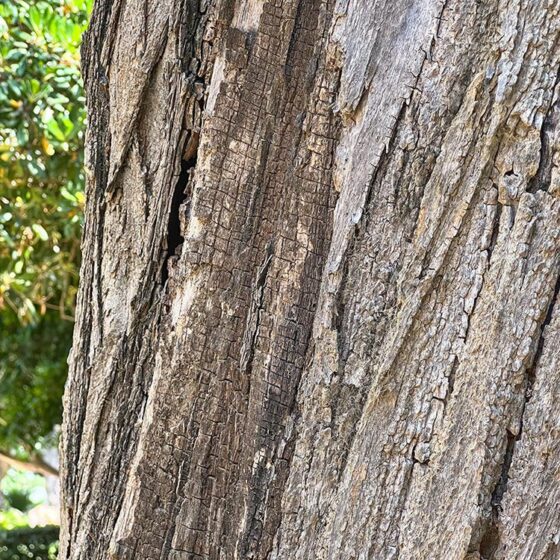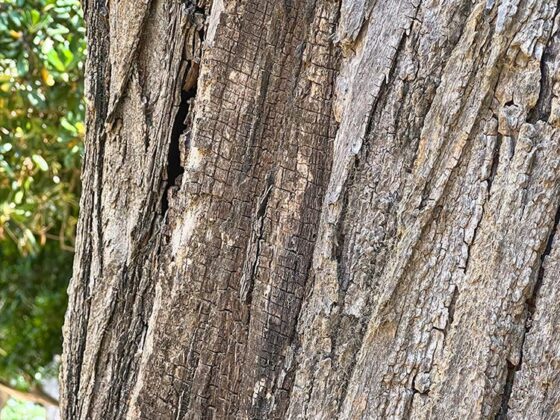False Acacia
Robinia pseudoacacia
Robinia pseudoacacia, the False Acacia, is a tree belonging to the Fabaceae family. Originally from the United States, more precisely from the Appalachian Mountains; it has been introduced in other countries.
Etmology:
Robinia: Jean Robin, French botanist, who brought the tree from New France (North America) to France in the year 1601.
Pseudoacacia: Latin epithet, of evident meaning, built from the Greek prefix ψεδο, “pseudo” and acacia, the generic name derived from the Greek ακακία (akakia), which was granted by the Greek botanist Pedanius Dioscorides (C. 90-40) for the medicinal tree A. nilotica.
Tree about 25m high with a trunk of less than one metre in diameter – exceptionally up to 50 m in height and 1.60 m in diameter in very old specimens – with a thick, black, deeply fissured bark. The leaves, with petiole and rachis with 5 sharp grooves, are 10-25 cm long with 9-19 leaflets that usually carry a pair of spines at the base. The flowers are very fragrant, white and are grouped in pendulous clusters. The fruit is a very compressed legume, which is cinnamon in colour. This legume matures at the end of autumn and remains in the tree until the following Spring.
The wood is used in carpentry, joinery, turnery, etc. The bees produce with the flowers of robinia a honey popularly known as “acacia honey”. The roots have a high capacity for the fixation of atmospheric nitrogen.
The specimens that grow in the gardens usually have numerous colonies of Aphis craccivora Koch (aphid), homopter of the Aphididae family. The attack of these aphids entails the deformation of the buds and the leaves as they suck the sap. On the other hand, the honeydew that they secrete, encourages the growth of fungi on the leaf surface, reducing the photosynthetic activity of the plants.







